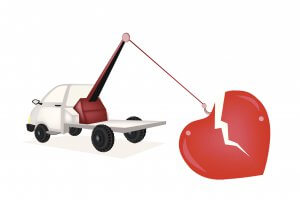Even after repossession or foreclosure, you may still be on the hook.

Having your car repossessed or your bank foreclose on your home is bad enough. However, that may not be the end of your troubles if you fall behind on a debt. Even after the lender takes your property, they can seek to recoup their remaining losses through a deficiency judgment. You end up paying the balance owed on a piece of property you no longer have.
This is the exact situation faced by Yvette Harris when her 1997 Mitsubishi was repossessed. She fell behind on the payments, the lender took the car, then they sued her in civil court. As a result, the court agreed to garnish her wages. According to her story in the New York Times, she’s already lost $4,133 from her paychecks. She’s still not done yet either.
What is a deficiency judgment?
A deficiency judgment is a civil court ruling that requires you to repay the balance still owed on a surrendered piece of property. The idea is that it makes the lender “whole” – a guiding principal in civil court. When they take back a car where you still owe a balance, they haven’t received the full balance of what they were owed. In other words, even if they sell your car to someone else, they still have a loss. A deficiency judgment may force you to cover that loss.
Deficiency judgments are not unique to auto loans. If you sell a home in a short sale, your mortgage lender can pursue a deficiency judgment, too. The amount equals the remaining balance on your mortgage minus the sale price.
Lenders don’t always pursue deficiency judgments. In many cases, they just write off the loss. However, many subprime auto loans have started pursuing judgments. They can’t resell a repossessed car to make up the loss, so they sue the defaulted borrower. In most cases, the court orders wage or tax refund garnishment to ensure you repay what you owe.
Never assume you’ll have a clean break
“Most people assume that repossession is the final straw. They’re not happy that they lost their property, but they often feel relieved things are finally over. It can give you a false sense of finality,” explains Gary Herman, President of Consolidated Credit. “Then you get caught unaware by a deficiency judgment.”
Herman advises that people need to think carefully and look for relief options early before letting any loan lapse. “You can’t just assume that you can stop making payments, they’ll take the car back and everything will be fine. It may not be.”
If you’re having trouble repaying a loan, consider the following options:
- Talk to the lender early – don’t wait to miss payments before you call them!
- In many cases, they may offer an adjusted repayment plan so you can make reduced payments.
- You should also ask about forbearance, where they temporarily suspend the payment schedule until you recover.
- Ask about refinancing, to see if you can adjust the terms of your loan in a way that works for your budget.
For more information on managing your auto loan, visit Consolidated Credit’s No-Hassle Auto Loan Management Guide.